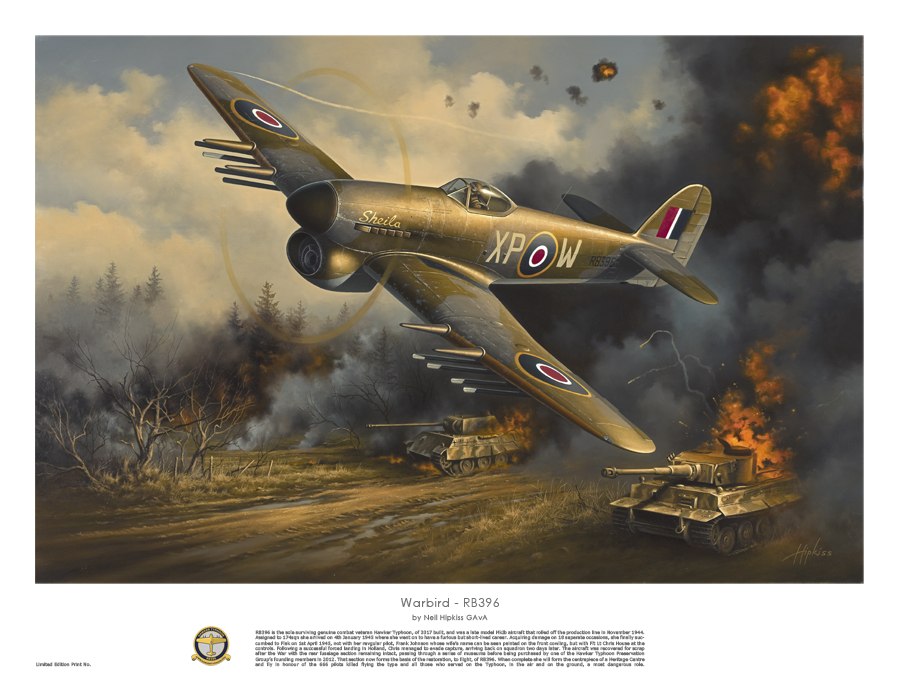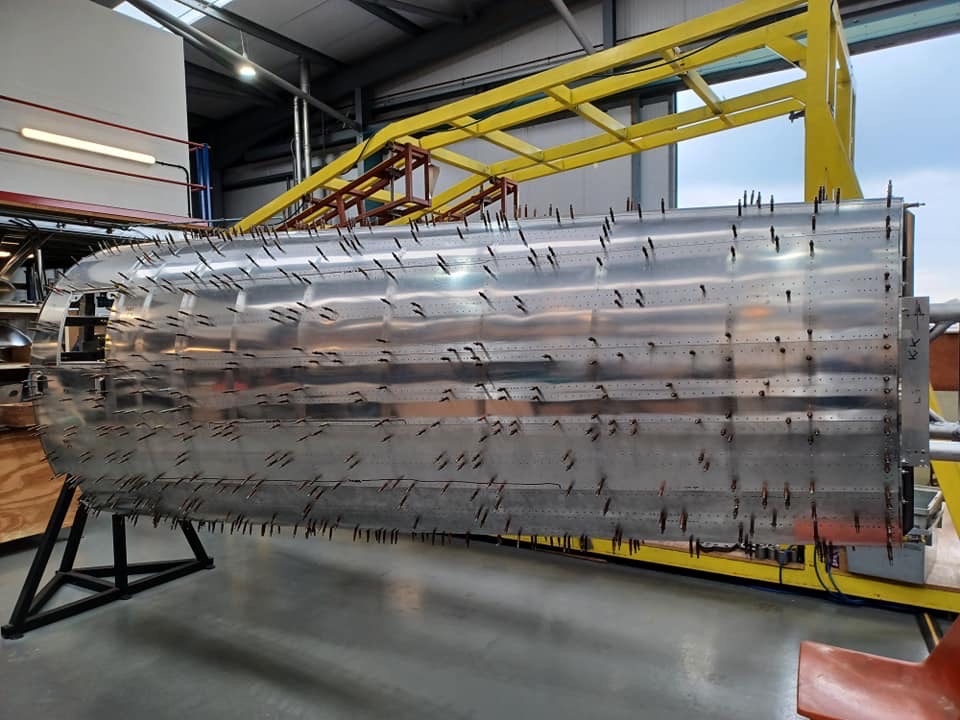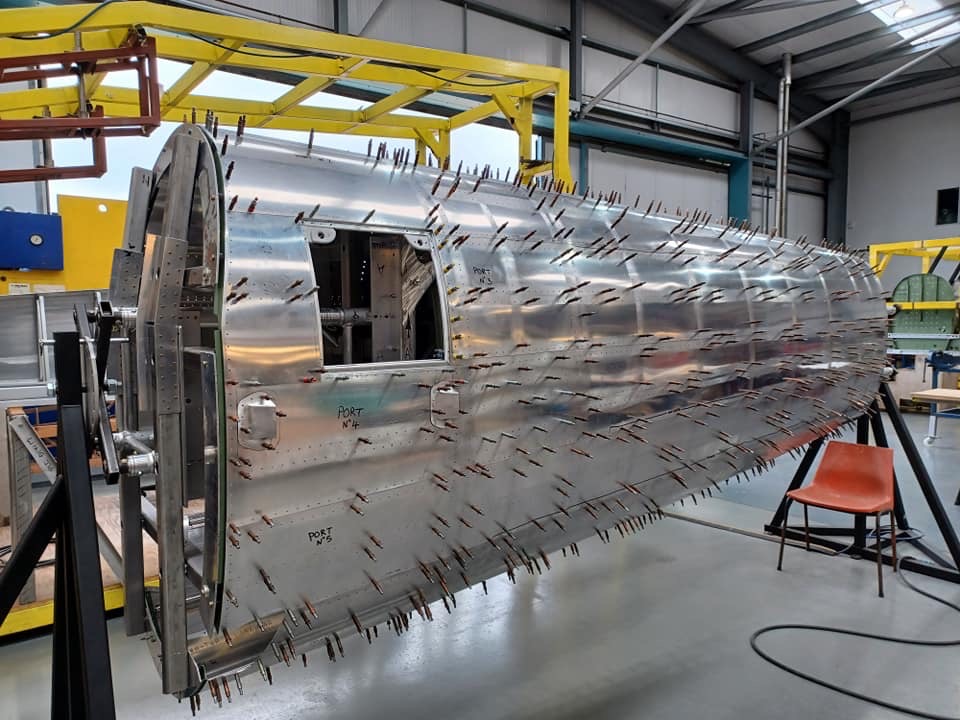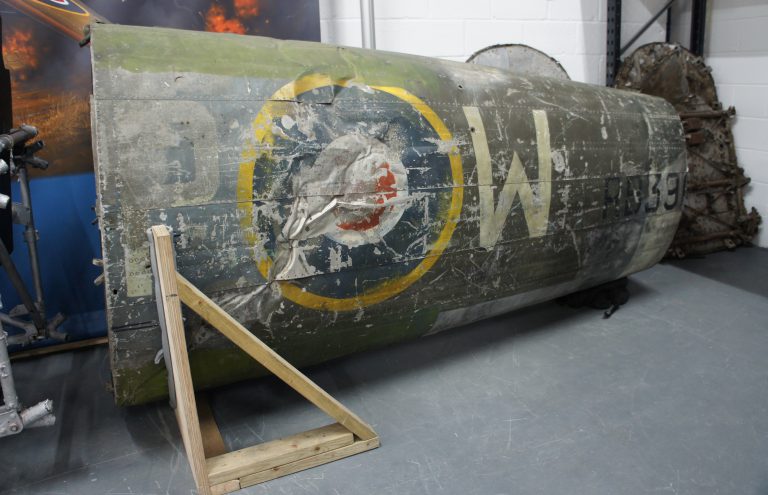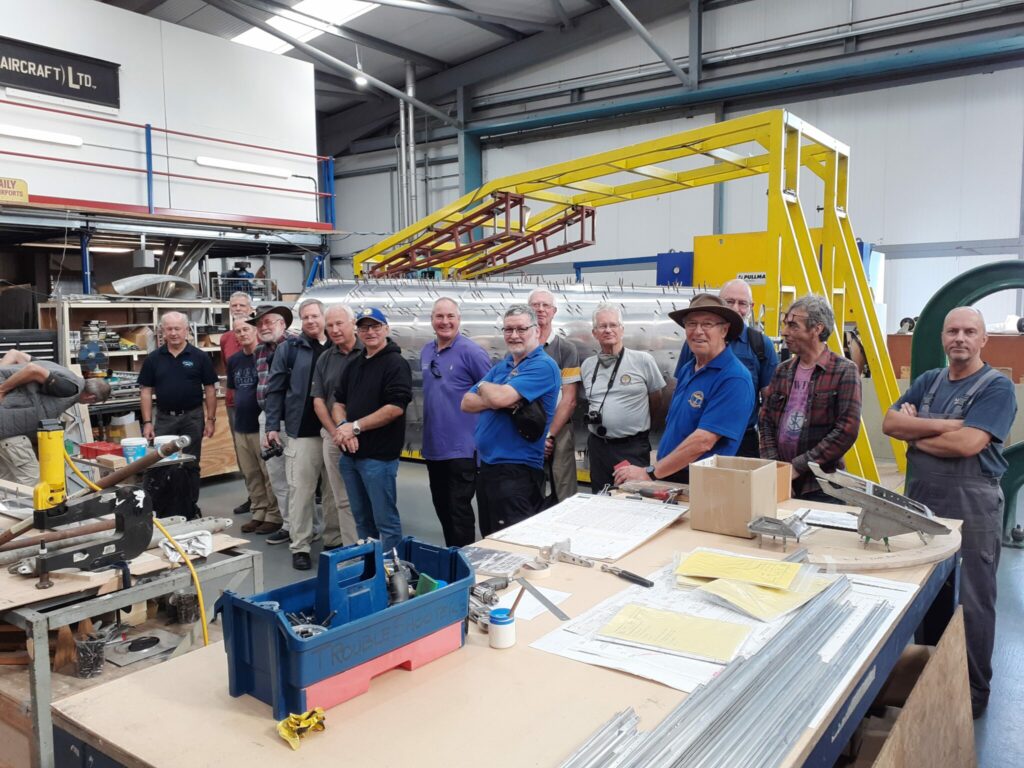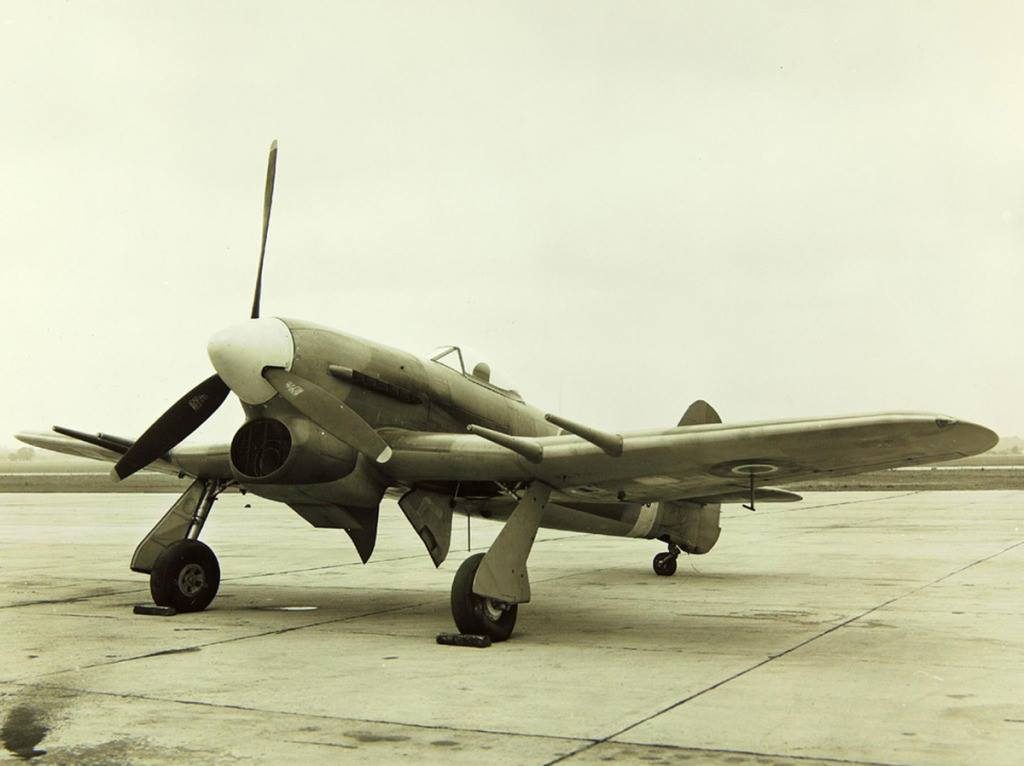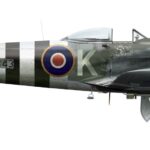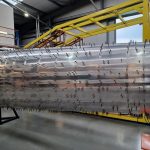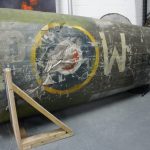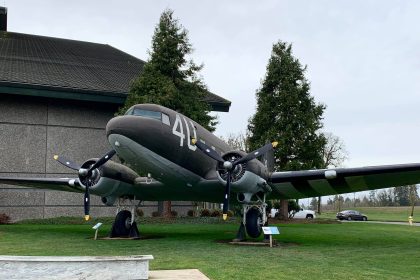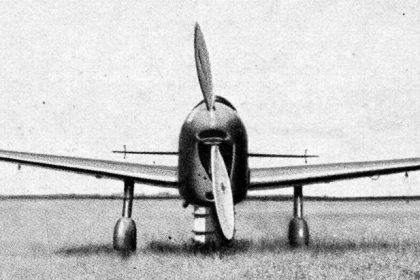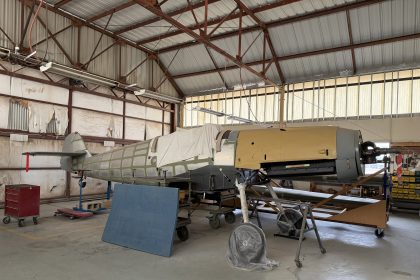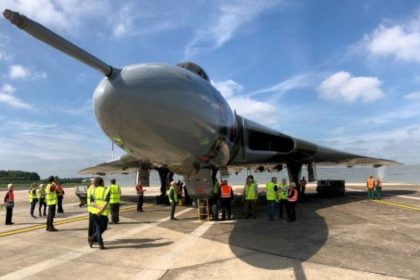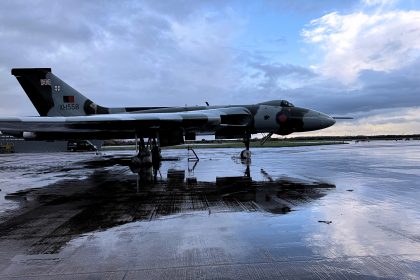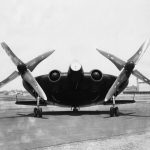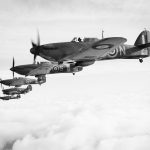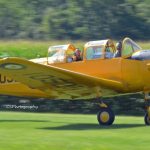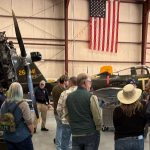As many will know, the Hawker Typhoon is one of the rarest production fighter aircraft from WWII, with only one known complete survivor in preservation today. We have been following this restoration for several years, you can find the previous articles at this link. The Hawker Typhoon Preservation Group is working very hard to change this situation and is presently endeavoring to rebuild Hawker Typhoon Mk.Ib RB396 uses the original rear fuselage from this aircraft as a starting point. Sam Worthington-Leese is spearheading this project, and he wrote the following report describing how the projects faring presently.
By Sam Worthington-Leese
The physical rebuild of Hawker Typhoon RB396 is now back on track. Following several months of behind-the-scenes work recently by the team, and two years of fundraising, we are delighted to announce that the rebuild of RB396 is back on track. The rear fuselage section, which forms the basis and identity of the project, has recommenced at Airframe Assemblies (AA) on the Isle of Wight.
In late 2021, after making stellar progress on the section, as well as having commenced the cockpit section at the Aircraft Restoration Company, Duxford, the ongoing effect of world events had a slowing effect on the project’s ability to raise the funds required to continue the physical rebuild. And so, at the end of 2021, the rebuild of the rear fuselage which was nearing completion, and the cockpit which had just begun, were paused.
That did not mean that nothing happened on the project since then. Quite the contrary. Parts have been sourced from all over the world, and the work of the project continued, largely behind the scenes, unacknowledged, and unsung – a little bit like the Typhoon!
Thanks to that hard work by the team, funds were in place by the end of 2022, but the “slot” at AA had been filled with other projects, so the next available slot had to be waited for. It was hoped this would be summer 2023. Unfortunately, this didn’t materialize as other projects overran, and spring 2024 was penciled in.
Recent developments in the workshop, which involved other projects finished ahead of schedule, meant that work on RB396 was able to recommence in the second week of December 2023. This is great news for the project and allows the 80th anniversary of D-Day on the 6th of June 2024 to be a realistic target for the completion of this first section.
The rear fuselage section is incredibly important to the project. Firstly, it is the identity section of the project and the section that the entire project is built around. It is one of the “founding” sections of the project and is an incredibly visual element of what we are doing. It is also the first section to have undergone restorative work, starting back in 2019 after a successful Crowdfunder campaign to commence the work. The aircraft is registered with the UK CAA as G-TIFY / RB396, taking its proven identity from this original rear section of Hawker Typhoon MkIb, RB396. The original skin on the port side of RB396’s rear fuselage is understood to be the sole surviving significant original example of 2nd Tactical Air Force paint anywhere in the world, adding another level to the historical significance of the aircraft, and the project.
In addition to these sentimental elements, the rear fuselage was/is in very good condition. This has meant that around 80% of the original structure has been able to be reused in the rebuild. This is a significant amount, and important to the history and story we are trying to tell. It would have been considerably easier and cheaper to simply remake all elements from new. We felt, however, that using as much original material as possible was important, and will continue to be so as the project develops to an airworthy aircraft.
All in all, this is a very significant section. Furthermore, it represents the start of the journey to see a Typhoon fly again, but in its completion, it will represent a significant milestone. As Winston Churchill said – “it may not be the beginning of the end, but it is certainly the end of the beginning”. We are working towards this, and look forward to bringing regular progress updates, and news of the completion of this, the first airworthy section of a Typhoon anywhere in the world since World War Two.
We are now in the process of organizing visits to see the rebuild in situ, for our supporters at Diamond, Platinum, Gold, Silver, and Bronze levels. And, we would very much like to thank all these supporters for their contributions which have enabled us to get to this point, as well as the team – all of whom are volunteers – who have worked so hard to make this a reality.
The project is actively seeking more supporters, both at an individual and corporate level. This project, on the 80th anniversary of D-Day year, provides an excellent opportunity to be associated with a true British engineering icon, one that is often overshadowed by its prettier contemporary, the Spitfire. It must be remembered that without the Typhoon, the build-up to D-Day and the subsequent battles, could have gone very differently. Some suggest that D-Day might have been postponed, not happened at all, or, if it did happen the Battle for Normandy may have been lost and the Allies driven back into the Channel. It is for this reason that it is incredibly important that we return RB396 to flight, to remember the sacrifices made.







